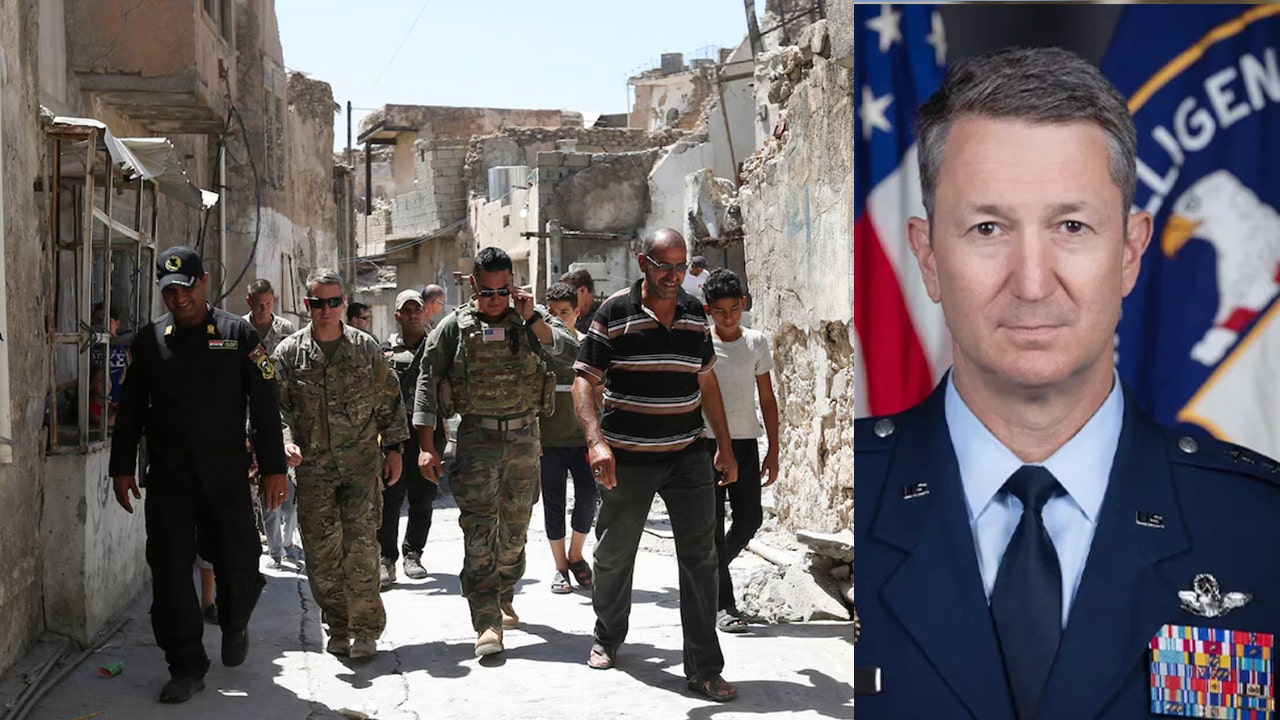Except for professional historians, I know no one familiar with the Crimean War, which pitted Russia against Britain, France, Turkey, and Sardinia from 1853-1856. To be sure, a few people recall that during this war Florence Nightingale introduced modern nursing, and Tennyson wrote his thrilling poem about the charge of the Light Brigade. Otherwise, this war seems to have left no trace in Western, and especially American, consciousness.
In this riveting account of the war, Gregory Carleton, the foremost expert on the Russian understanding of war, argues for its importance. “Crimea changed the face of modern warfare forever,” he claims in Crimean Quagmire. For one thing, it featured several technological firsts. The Russians’ old-fashioned musket was no match for the modern rifle wielded by the British and French. Standing at a distance that muskets could not reach, they were able to annihilate Russian regiments. Long-range artillery came into use, and here the Russians did not lag behind. By using the new steam-powered ironclad ships firing explosive shells, the Russians were able to destroy the Turkish Navy of wooden sailing ships. Landmines, or “man-traps,” killed people long after a battle was over. The railroad, telegraph, and photography became part of warfare. On the plus side, anesthetic chloroform made operations bearable. A Russian doctor, Nikolai Pirogov, introduced triage surgery so treatment could be given first to those with a chance to survive. Taken together, Carleton observes, these innovations “represent the greatest revolution in warfare since the introduction of gunpowder.” It was, in short, “the first ‘modern’ war.”
And yet it was also the last war in which most military casualties took place off the battlefield. Soldiers were far more likely to die from disease, exposure, and hunger than in combat. That had always been the case, but it now shocked popular opinion because these deaths were almost entirely preventable. Lack of foresight, poor planning, incompetence, indifference, and above all bureaucratic morass resulted in the death of tens of thousands. Although the cause of scurvy was well known, British soldiers suffered from it because they were given a diet without fruits and vegetables. People at home learned of these failures because of what Carleton considers the most important innovation of the war: near real-time accounts of it. British soldiers, most of whom were now literate, wrote letters about their experiences and, especially important, journalists did on-the-spot reporting.
The most influential British paper, The Times, dispatched William Howard Russell as what we now call an “embedded” reporter, and his stories, which continued until the war concluded, moved the British public as never before. Such frankness was of course impossible in the empire of the tsars, but tales written by a young junior officer, who was just beginning to be well known, were widely read, as they still are. The officer’s name was Count Lev Nikolaevich Tolstoy, and the lessons he learned about how battle is really conducted were to shape the greatest novel of world literature, War and Peace, which described war realistically for the first time.
As Carleton tells the story, both Russell and Tolstoy began the war accepting what Carleton calls “the Heroic default”: war pictured with unfurled banners, glorious pageantry, selfless sacrifice, and heroes squaring off in mortal combat—images derived ultimately from The Iliad and, in England, from Shakespeare’s Henry V. It was in this frame of mind that Russell described how the light brigade, because of an unclear order, mounted a hopeless charge against Russian cannons. Within a month, an inspired Tennyson published his immortal poem:
“Half a league, half a league,
Half a league onward,
All in the valley of Death
Rode the six hundred. …
“‘Forward the Light Brigade!’
Was there a man dismay’d?
Not though the soldier knew
Someone had blunder’d.
Theirs not to make reply,
Theirs not to reason why,
Theirs but to do and die.
Into the valley of Death
Rode the six hundred.”
Still a staple of Russian patriotic literature, Tolstoy’s amazing “Sevastopol in December” employs an extremely odd form. I know of no other instance of a successful literary work written not in the first or third but in the second person (and second person imperative). It succeeds, as other second-person works do not, because the device is not just a gimmick. The story uses the second person naturally because it imitates a tour guide, a form usually written this way: consider the once-famous handbook, Turn Right at the Fountain: Fifty-Three Walking Tours of Europe’s Most Enchanting Cities, published by the New York Times in 1961.
Tolstoy takes the reader on a guided tour not of “enchanting places,” as tour guides usually do, but of a city under siege with people constantly maimed or killed. He leads the reader past markets, barricades, bastions, and, at last, the hospital:
Now, if your nerves are strong, go in at the door to the left; it is there they bandage and operate. There you will see doctors with pale, gloomy faces, and arms red with blood up to the elbows. … The doctors are engaged in the horrible but beneficent work of amputation. You will see the sharp curved knife enter the healthy white flesh; you will hear the wounded man come back to life with terrible, heart-rending screams and curses. You will see the doctor’s assistant toss the amputated arm into a corner and … you will see another wounded man on a stretcher watching the operation, and writhing and groaning … from the mental torture of anticipation.
Tolstoy describes people performing their duties and going about their lives as if nothing out of the ordinary were taking place. The story concludes with “your” overall impression: “a joyous conviction of the strength of the Russian people. … What they do is all done so simply, with so little effort … You understand that the feeling that actuates them is not that petty ambition or forgetfulness which you yourself experienced, but something more powerful, which has made them able to live so quietly under the flying balls, exposed to a hundred chances of death. … Men could not accept such horrible conditions of life for the sake of a cross, or promotion, or because of a threat: there must be some other and higher motive power.” The tsar loved the story, had it translated into French to be published abroad, and allegedly let it be known that the welfare of the author was of special concern to the crown.
Russian authorities were not so pleased with Tolstoy’s next contribution, “Sevastopol in May.” Explicitly criticizing his first story, Tolstoy shatters the heroic myth present in it and all previous accounts of war. Here Tolstoy takes his first steps to the supreme realism no one else ever achieved. Instead of focusing on the collective “Russian people,” he describes believable and unremarkable individuals. Neither especially good or bad, heroic or cowardly, virtuous or vicious, they focus, as people usually do, on everyday, even petty, concerns. Perhaps the most famous scene, sometimes considered the first example of stream of consciousness narration, describes a soldier who has thrown himself on the ground as he watches the fuse of a bomb that has landed next to him. For a page Tolstoy describes his thoughts from within. They seem to take a while as the soldier recalls an insult he never avenged, a debt that should have been repaid, and a woman in a cap with lilac ribbons. He hopes the bomb won’t explode, sees a red flame, jumps up, and begins to run. Falling, he rejoices that he has only been bruised. Then he counts soldiers flitting by, feels a wetness, suffers thirst, and imagines he hurt himself falling. He feels stones being piled up on him, and then—nothing more. Tolstoy then switches to the external point of view: “He had been killed on the spot by a bomb splinter in the middle of his chest.”
“Sevastopol in May” concludes with a reference to “Sevastopol in December”: “There, I have said what I wished to say this time.” Where are the heroes or villains of my story? he asks, and answers: There are none. “The hero of my tale—whom I love with all the power of my soul … who has been, is, and will be beautiful—is the truth.”
But “the truth” is not what political leaders want. They demand inspiring actions, while Russell instead described soldiers with inadequate shoes sinking into deep mud, as the ground literally dissolves—”Crimea being one of the few places where one could drown on high ground in the mud and rain.” In the winter, British soldiers lacked adequate clothing. They “could be found in the morning frozen solid in several feet of snow.” Even if adequate supplies reached the harbor at Balaklava, nothing could be carried across the impassable six miles of roads from port to camp. By winter’s end a regiment of 1,080 men could muster only 7.
Most shocking of all was the bureaucracy. Russell describes one officer pleading with another in charge of government stoves to release a few so that his men do not freeze. He is told that he must obtain and fill out the proper forms in triplicate. “But my men will die in the meantime.” “I can’t help that; I must have the requisition.” Russell concludes this scene by observing that the very paper on which the requisition forms were printed had run out! It was scenes like this that led Dickens, a few years later, to invent his “Circumlocution Office.” Never before had governments contended with such reports.
If only all this needless suffering and death led to victory, but, figuratively as well as literally, the armies were bogged down. As in World War I, endless trench warfare accomplished nothing. The Crimean War took a million lives, and for what? No one could even coherently state the war’s goals in terms ordinary people could grasp. For this reason, Carleton observes, this was the first modern quagmire.
It was not the first description of war’s pointless horrors. Carleton does not mention Robert Southey’s poem, “The Battle of Blenheim” (1796), which poses the same questions about death for no discernible reason. It seems that Old Kaspar’s grandson Peterkin finds a skull, which, it turns out, is not unusual because they live on what was once the site of the famous Battle of Blenheim. Old Kaspar explains:
“They say it was a shocking sight
After the field was won;
For many thousand bodies here
Lay rotting in the sun.
But things like that, you know, must be
After a famous victory … .”
“‘But what good came of it at last?’
Quoth little Peterkin.
‘Why that I cannot tell,’ said he.
‘But ’twas a famous victory.’”
The difference is that Blenheim had occurred 92 years earlier, whereas Russell and Tolstoy were reporting ongoing horrors.
Carleton’s fascinating details and apt quotations fascinate the reader. Carleton is less good when he turns to more recent events. Describing the quagmire of the Vietnam war as “a near-genocide inflicted on the local population,” he maintains it led to a defeat that “nearly broke the country.” I lived through those tumultuous years, participated in the antiwar movement, and worried about the chaos that ensued, but nobody I knew or heard of thought the country might “break,” not even the terrorists who hoped it would. And while the war was certainly a quagmire, in the sense of a long stalemate, leaders could (unlike their Crimean predecessors) explain why it was being fought. For one thing, defeat entailed condemning the local population to the “bloodbath” (the term usually used) that had always followed Communist takeovers. And that prediction proved accurate. How bad do conditions have to be for a million or more Vietnamese to risk their lives on the ocean, in rafts or rickety boats, to escape? And of course what happened in Cambodia was far worse. No such disasters threatened either Russians or allies in the Crimean War.
I was especially distressed at Carleton’s cavalier use of the word “genocide.” The war Russia is waging in Ukraine, Carleton asserts, has “genocidal implications.” Russian actions are certainly horrendous, cruel, and unjustified. Targeting civilians, torturing and executing prisoners, and kidnapping children shock the conscience. But there is no good reason to think that the Russian government is doing, or intends to do, what the Nazis did to the Jews. To cheapen the word “genocide,” as is now frequently done, is to soften what happened to the Jews and make the Holocaust into an ordinary atrocity, like thousands of others. If there is such a thing as Holocaust denial, this is Holocaust diminishment.
Just as not every dictatorship is totalitarian and not every thuggish ruler is Hitler, Stalin, or Mao, not every bloody war is genocidal. Political activists routinely treat hyperbole as fact in order to gain followers. Every crisis must be described as “existential.” But scholars should refrain from such rhetoric. Like Tolstoy, they should place the highest value on the truth.
Crimean Quagmire: Tolstoy, Russell and the Birth of Modern Warfare
by Gregory Carleton
Oxford University Press, 364 pp., $34.99
Gary Saul Morson is a professor of Slavic languages and literatures at Northwestern University and author, most recently, of Wonder Confronts Certainty: Russian Writers on the Timeless Questions and Why Their Answers Matter (Harvard).
Read the full article here







